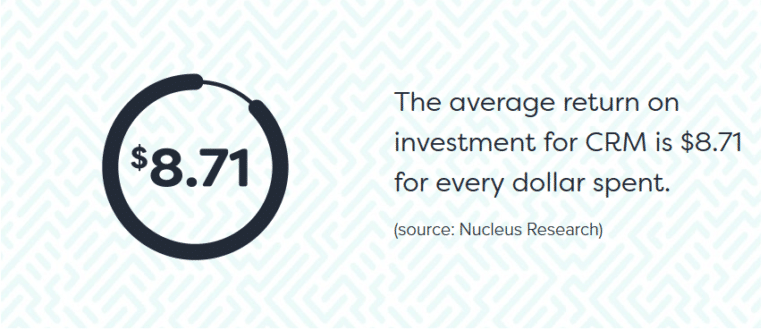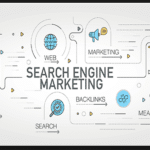There’s a good chance you’ve heard of MarTech, which is short for marketing technology. As a business in today’s technologically-advanced era, MarTech is more important than ever before. There are a wide range of software and tech tools designed specifically to improve your marketing efforts, regardless of the industry you operate in. With the right MarTech tools in place, you can plan, deploy, and measure your marketing campaigns. More importantly, you can use analytics to refine your marketing efforts and achieve higher conversions. At the heart of your MarTech stack should a robust customer relationship management (CRM) tool.
Why Do I Need aCRM Tool?
A CRM tool not only speeds up productivity, but it also drives sales. Essentially, it allows you to communicate better and establish long-term relationships with your customers.
A CRM tool is much more than an address book that displays customer names and contact information. You should use it as a tool that syncs with other business applications as this allows it to become a central dashboard that highlights the individual journeys of your customers. And with a clear view of each customer’s journey, it becomes possible to improve their overall experience with your brand.
Is CRM Worth the Investment?
A CRM tool can bring immense value to your company, especially if you have a considerable amount of customer data. However, choosing the right CRM tool is crucial to earning a strong ROI on your investment. This is why it’s so important to choose a tool that integrates with your existing applications. If you can’t find one that integrates, you may want to consider upgrading your applications.
According to Nucleus Research, when CRM software matches your company’s needs and you take full advantage of it, you can achieve an ROI of $8.71 for every dollar spent.
 How Does CRM Software Improve Customer Relationships?
How Does CRM Software Improve Customer Relationships?
Many smaller companies don’t realize how much they can benefit from a CRM tool. They think with a limited number of customers, they don’t need to invest their marketing dollars toward CRM. The truth is, though, even small businesses usually have a massive amount of customer data they can leverage within a CRM to build data-driven marketing strategies that result in better customer relationships.
Think about it. Back when your company first started out, you most likely kept track of customers through spreadsheets, emails, and address books. You can easily export all of this information into a CRM tool that allows you to combine, update, and interpret customer data. In doing this, you can extract meaningful insights. You’ll have a bird’s eye view of each individual interaction a customer has with your company, including communications with your employees, purchases made, inquiries resolved or unresolved, and so much more. This takes the guesswork out of segmenting customers for marketing purposes and makes it simple to target customers with marketing messages that resonate with their unique needs.
Ultimately, a CRM tool gives you the ability to create a standardized sales process for your sales team. You can provide them with a roadmap for not only closing more deals but shortening the sales cycle. As more data enters the CRM, you can determine the culprits for stalled deals. By understanding these root causes, it becomes easier to create solutions that expedite and enhance the customer journey. Plus, the CRM will help you predict your sales, allowing you to always have enough hands on board to attend to customers in a timely manner. With a better customer journey comes a better customer experience, and with a better customer experience comes 5-star reviews and long-term customer loyalty.
Final Thoughts
A CRM tool should be a central focus when building a MarTech stack for your brand. As you better understand the interests and behaviors of your customers, your marketing team can create marketing campaigns centered around useful, targeted content. Want to learn more about CRM and how it can help you build better relationships with your customers, particularly from a marketing standpoint? Contact IGW today.


 How Does CRM Software Improve Customer Relationships?
How Does CRM Software Improve Customer Relationships?



